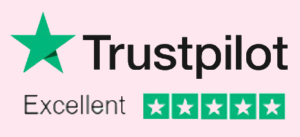
Car finance deals tailored to your needs within minutes.
- Check your car finance eligibility without affecting your credit score
- Get your quote in a few clicks within minutes
- Plans tailored to your budget

What is Car Finance?
Home insurance, or house insurance, is crafted to provide financial protection for your home and your cherished belongings. With insurance policies, your home and possessions can be safeguarded against damage or loss from events such as fire, floods, storms, and theft, depending on your chosen coverage.
There are two main types:
1. Buildings insurance
2. Contents insurance.

How does car finance work?
Wondering if home insurance is a must for you? While home insurance isn’t legally mandatory, it’s a safeguard you shouldn’t overlook.
Additionally, If you’re in the process of purchasing a property with a mortgage, you might discover that your loan won’t be greenlit unless you have adequate insurance for your bricks and mortar. Whether you are a homeowner, landlord, renter or even a flat sharer, we’ve got policies that can cater to different lifestyle requirements, enabling you to pick your best fit:
Decide your contract tenure and agree upon conditions
Whether you fully own your home or are in the mortgage game, safeguarding your physical structure and belongings can be key.
Borrow money on success of your application
If you’re renting out your property, you’re legally responsible for its condition. Cover the building and contents you provide, and we’ve got you covered.
End of your contract
As a private tenant, it’s best for you to just opt for contents insurance, as you are only responsible for your belongings. No need to stress about building insurance; that’s on your landlord.
Types of car finance: What can you choose from?
Car Loan
Assistance in case of sudden and unexpected home emergencies, such as boiler breakdowns, burst pipes, electrical failures, or lockouts. It typically offers access to a helpline for immediate assistance and covers the cost of emergency repairs, ensuring your home remains safe and functional.
Hire Purchase
Accident cover provides financial protection in case you or a family member is injured within your home. It can help cover medical expenses, loss of income, or rehabilitation costs resulting from accidents that occur on your property.
0% Finance
Legal protection covers matters related to disputes with neighbours, tenants, or property-related legal matters. It covers the cost of legal advice and representation, ensuring your rights are protected.
Leasing
Assistance in case of sudden and unexpected home emergencies, such as boiler breakdowns, burst pipes, electrical failures, or lockouts. It typically offers access to a helpline for immediate assistance and covers the cost of emergency repairs, ensuring your home remains safe and functional.
Personal Contract Purchase (PCP)
Accident cover provides financial protection in case you or a family member is injured within your home. It can help cover medical expenses, loss of income, or rehabilitation costs resulting from accidents that occur on your property.
10%purchase credit card
Legal protection covers matters related to disputes with neighbours, tenants, or property-related legal matters. It covers the cost of legal advice and representation, ensuring your rights are protected.
Can I get car finance with bad credit?
The right amount of life insurance depends on your circumstances, such as dependents, their needs, and available income sources.
At Monefi, we empower you to make an informed choice in picking the most suitable policy for your situation and to avoid overpaying. Our approachable experts guide you through assessing your financial obligations, and create a customised policy that meets your family’s unique needs.


How much does car finance cost?
Selecting the right home insurance depends on your unique needs and circumstances. Here are some considerations:

Bundle Policies
Purchasing both home and contents insurance from the same provider may result in discounts. Combining your coverage can often lead to cost savings.

Annual Premium Payments
Some insurance providers offer a discount of around 5% to homeowners who pay their premiums annually instead of on a monthly basis.

Adjust the Excess
Increasing the excess (the amount you pay out of pocket when making a claim) on your policy might lead to a lower premium. It’s important to be mindful that a higher excess means you’ll need to pay more in the event of a claim.

Bundle Policies
Installing a comprehensive home security system with alarms, BSI-approved locks, and other security components can potentially reduce your insurance premiums for both your home and contents policies. This added security can make your home less susceptible to theft and damage.
What documets do I need to apply for car finance?
According to the latest data from ABI’s Household Premium Tracker as of August 2022, the annual cost of combined home insurance stands at £299*. This average breaks down to an annual average of £228* for buildings insurance and £116* for contents insurance.

Location
The area where you reside can significantly impact your insurance cost. Some locations may have higher risks of specific perils, such as theft or natural disasters, which can lead to higher premiums.

Property Size
The size and type of your home, whether it’s a house, apartment, or flat, also matter. Larger properties may have higher rebuilding costs, affecting the price of buildings insurance.

Contents Value
The total value of your belongings, including furniture, electronics, and personal items, is a crucial factor in determining your insurance cost. Higher-value contents may result in higher premiums.

What is car refinancing?
“Opt for annual payments whenever possible and, if you require both, consider comparing bundled buildings and contents insurance along with standalone policies to ensure you have the perfect coverage.”
“It’s wise to compare quotes each year and steer clear of the auto-renewal trap.”
Latest news:
Filing a claim should be a straightforward process:
- Contact your insurer, and you can find their contact information on your home insurance documents or their website.
- Be sure to have essential details like your policy number at hand when you call.
- Your insurer will need comprehensive information about the nature of your claim and what you’re claiming for.
- Create a list of damaged furniture and possessions as soon as possible. Some insurers may require you to complete a claim form, while others can handle the claim over the phone.
- If your claim involves theft or burglary away from home, you’ll need a police crime number to initiate the claim officially.
For damage to your property or possessions, you’ll need evidence such as photos or videos. While it might be tempting to tidy up, it’s advisable to leave everything as it is (once safe) in case a loss adjuster needs to assess the full extent of the damage.
Certainly, opting for a higher excess typically leads to reduced insurance premiums. This can result in lower annual expenses, although its cost-saving benefits only materialise in the absence of any claims. When deciding on your excess, think about how much you can afford to pay if you ever need to make a claim.



